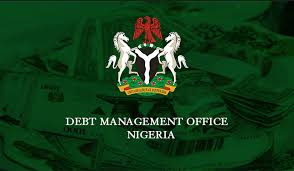Nigeria’s total external debt stock declined to $41.59 billion as of the third quarter this year, representing $1.57 billion drop from the $43.16 billion it stood in the third quarter of last year
The Debt Management Office (DMO) gave these figures in its juts published third quarter 2023 public debt report.
According to the report, the decline in the external debt stock is due to the redemption of Nigeria’s $500 million Eurobonds and the first principal payment of $413.859 million the IMF’s $3.4 billion loan obtained during the 2020 covid-19 period.
The DMO stated: “External debt decreased due to a redemption of USD500 million Eurobond and the payment of USD 413.859 as first principal repayment of the USD4.3 billion obtained from the International Monetary Fund (IMF) in 2020 during COVID-19″
A further analysis of the country’s debt stock indicated that the total public debt increased from N87.38 trillion at the end of the second quarter to N87.91 trillion ($114.35 billion) as of September 30, 2023, representing a marginal increase of 0.61% within three months.
Conversely, the DMO’s report reflected that the country’s domestic debt stock rose by N1.80 trillion to N50.196 trillion at the end of the third quarter.
Nigeria’s total public debt surged to N87.38 billion in the second quarter of this year due to the securitization of the N22.712 trillion Ways and Means advances from the Central Bank of Nigeria (CBN) to the Federal Government
In the 2024 Appropriation Bill now before the National Assembly, the Federal Government proposed to borrow N7.83 trillion as part of measures to bridge the budget deficit of N9.18 trillion while also exploring fiscal means to reduce its dependence on debts and increase its revenue generation capacity.
To achieve this, President Tinubu had last June inaugurated a Presidential Committee on Tax Reforms and charged it to look into the tax laws and introduce reforms that will increase the nation’s revenue and block leakages.






